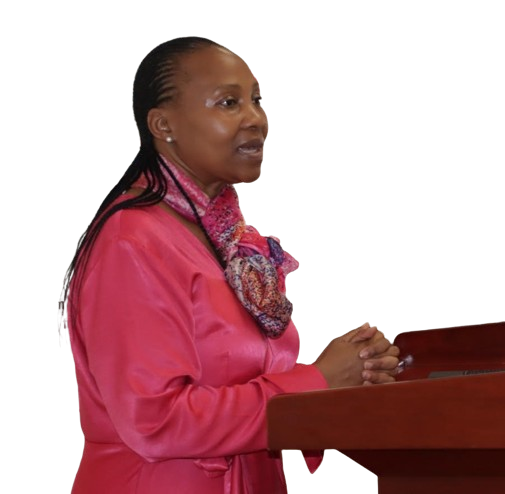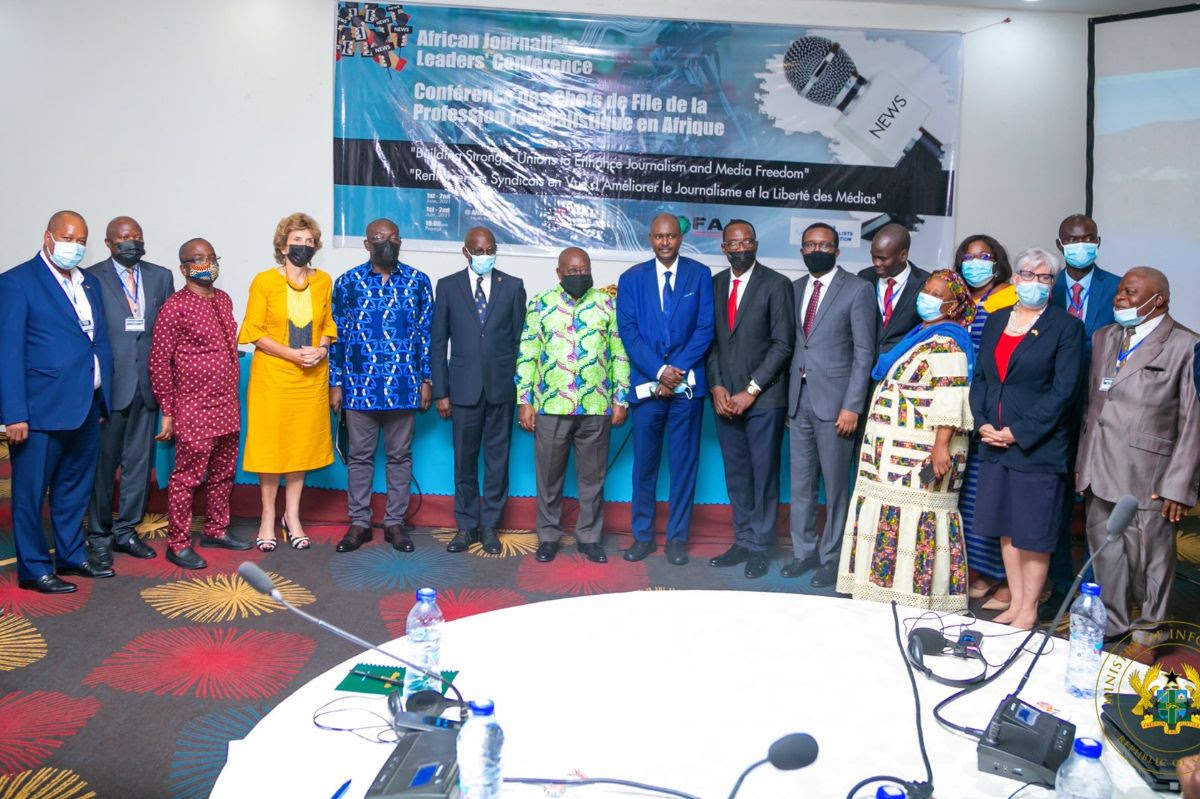
The Secretary General of the SADC Parliamentary Forum, Ms Boemo Sekgoma. Photo: Moses Magadza
By Moses Magadza
The Secretary General of the SADC Parliamentary Forum, Ms. Boemo Sekgoma, has commended directors of Information Communication Technology (ICT) departments of national parliaments for their commitment and dedication to fostering digital empowerment within parliaments.
Ms. Sekgoma delivered a keynote address during a webinar of the Southern Africa Regional HUB of ICT directors on ‘Leadership Approach for Digital Transformation During and Post COVID-19 pandemic’ which took place on Monday.

“That commitment is vital in this era where digital and social technologies are reshaping our operational landscapes and cultural norms,” the SG said.
She maintained the shift towards digital transformation, within and outside COVID-19 had come with gains and challenges.
“It has demonstrated the power of digital technology to ensure continuity, enhance transparency, and improve the effectiveness of governance. Yet, it has also laid bare hurdles that include digital divides, cybersecurity threats, and the need for robust digital literacy amongst our staff and constituents,” she stated.
She observed that COVID-19 happened when moving towards digitalisation was already on the agenda of the SADC PF as it sought to “enhance the efficiency and accountability of our Parliaments”.
“However, the pandemic expedited this need, thrusting us into an era where virtual meetings, digital voting, and online citizen engagement became not just innovative, but essential for our continuity,” she noted.
She acknowledged the role of visionary leadership in digital transformation, and in ensuring a more resilient and inclusive parliamentary system.
Ms. Sekgoma said the need to build the capacity of users of ICT to efficiently and productively work on and through virtual platforms was a priority while embracing digitalisation.
She said: “It was not enough to provide gadgets. A continuing challenge as we strive to embrace ICT in our work is related to bandwidth and connectivity, especially in hard-to-reach parts of our region. In some instances, the cost of data is still high for many people including women and young people, raising the risk of leaving others behind.”
She expressed optimism that the ICT directors would continue consolidating gains in digital transformation and addressing emerging challenges.
“The Southern Africa Hub (SAHUB) stands at the forefront of this endeavour, with objectives that are both timely and imperative. By facilitating digital transformation, we aim not just for recovery, but for a renaissance of our parliamentary functions, making them more accessible, responsive, and attuned to the needs of the people we serve,” she stated.
She called for regional collaboration, to “amplify our impact, share best practices, and, importantly, ensure that our digital transformation journey is inclusive”.
She welcomed the creation of a Centre of Excellence for capacity building in ICTs as a giant step towards empowering MPs and staff of parliaments while safeguarding the interests and rights of all citizens in the digital age.
“The essence of leadership in digital transformation lies not in the technology itself but in our ability to harness it for the greater good. It is about envisioning a future where digital parliaments are not just a concept but a reality, where transparency, accountability, and effectiveness are not just ideals but everyday practice,” she contended.
Participants in the webinar discussed how COVID-19 had impacted the need for digital transformation in national parliaments. They also exchanged views on challenges and opportunities in digital conversion in the wake of COVID-19.
It emerged that the pandemic had made digital transformation an imperative with many national parliaments introducing zoom and other software to enable virtual meetings.
Equity in connectivity was a major issue as people in hard-to-reach areas were underserved while people in some countries were thwarted by high costs of data which were so prohibitive that some members of parliament were unable to access virtual platforms.
In some instances, parliaments paid for data for their MPs, but many were unable to support their MPs in that regard. Some national parliaments enabled MPs to vote virtually whenever a decision was needed after changing their standing orders in line with prevailing conditions.
It was noted that lack of clarity and poor appreciation of the role of ICT in parliaments remained a challenge. It was therefore recommended that multidisciplinary teams be set up to enrich discussions on digital transformation.
The importance of consulting staff of parliament and other stakeholders through, for instance, surveys to establish satisfaction with services and their needs was stressed. It was recommended that strategies be put in place to enable citizens to articulate their needs with respect to ICT while ensuring adequate financing of ICT.
The webinar revealed that there had been an increase of discussions in parliament with more and more people getting involved in conversations around digital transformation.
It emerged that staff and members of parliament were now showing interest in ICT related issues. Additionally, networking had increased with ICT directors interacting more across countries.
In some cases, ICT had opened new ways of working in national parliaments, with more things being done relatively quickly involving many people in real time. Regardless, challenges remained especially on how to get the leadership of parliament to fully support efforts towards digital transformation.
To remedy that, there were calls for agility, responsiveness and for putting in place appropriate and adequate ICT infrastructure and gadgets while ensuring the security of people using ICT platforms.
It was concluded that cooperation, innovation, transparency and accountability were essential in gaining the trust and support of all stakeholders in the digital transformation revolution.
Participants in the webinar were from different SADC countries including Namibia, South Africa, Seychelles and Madagascar.
Mr. Michael Mukuka, the SAHUB coordinator, called for more engagement on digital transformation.
“Let’s engage with each other to create strong linkages that can be used in times of need,” he said.
He said the next webinar is scheduled for April 15. It will focus on the benefits and impact of artificial intelligence.









